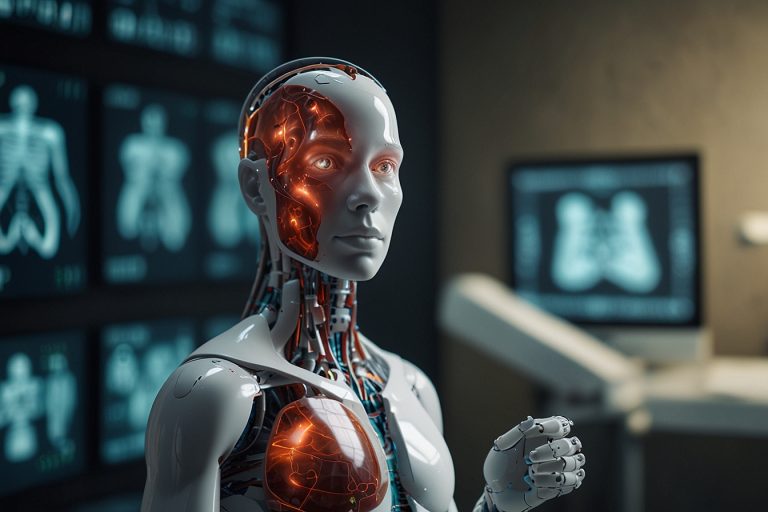AI in medicine is revolutionizing the way we used to provides solutions which before was impecunious to the current challenges and this has helped to improve patients care. In respect of diagnosis, treatment and to the extended phases after diagnosis and treatment AI is the most significant game changer in the delivery of healthcare now and in the future.
AI is well known in the area of medical imaging including the field. AI algorithms are capable of huge data analysis, namely, medical images like X-rays, MRIs, and CT scans with exceptional speed and precision. Through identifying faults and patterns avoidable for human beings AI supports doctors in reaching more accurate diagnosis and therefore detection of diseases (for instance cancer) becomes earlier and more effective decisions on treatment may be prompted.
A further development promoted by AI in the field of health is proactive analytics. Predictive analytics play outstanding role in this domain, as well. By running predictive analytics on medical patient data such as electronic health records and genetic data, AI algorithms identify people at risk of developing certain ailments. Patients will thus have the chance to step in before the condition, but only while the symptoms can be treated and prevented to forestall future risk of some health concerns.
Additionally AI is aids in both drug discovery and development processes as well. Through analyzing wide datasets and simulating molecular interactions AI algorithms can come out as an alternative and more efficient method in discovering new drug candidates than traditional approaches. This streamlines the drug discovery system to lower both costs and time-to-big-pharma as critical medications make it.
Not less, AI gives the patients a better future by creating individualized treatment plans. Enhancement of personalized medicine is done through examination and analysis of patient data, alongside medical literature which then contribute to developing appropriate instructions for treatment that factor in all peculiarities of an individual person and their medical history. This tailored way of correction increases performance of medicines, decreases effects on body as side, and also increases a level of patients’ subjective satisfaction.
Firstly, AI is the world-changing factor in medicine where there is a great opportunity to improve the health of patients while adding the benefits to the work quality aligning with the medical research. To what purpose the integration of AI technologies in health systems is getting the promise of the future use-case scenarios along with the possibility to not only diagnostic, but also cure and prevent diseases at their early stages, thus making people healthier and happy is not far from the real case after all.



